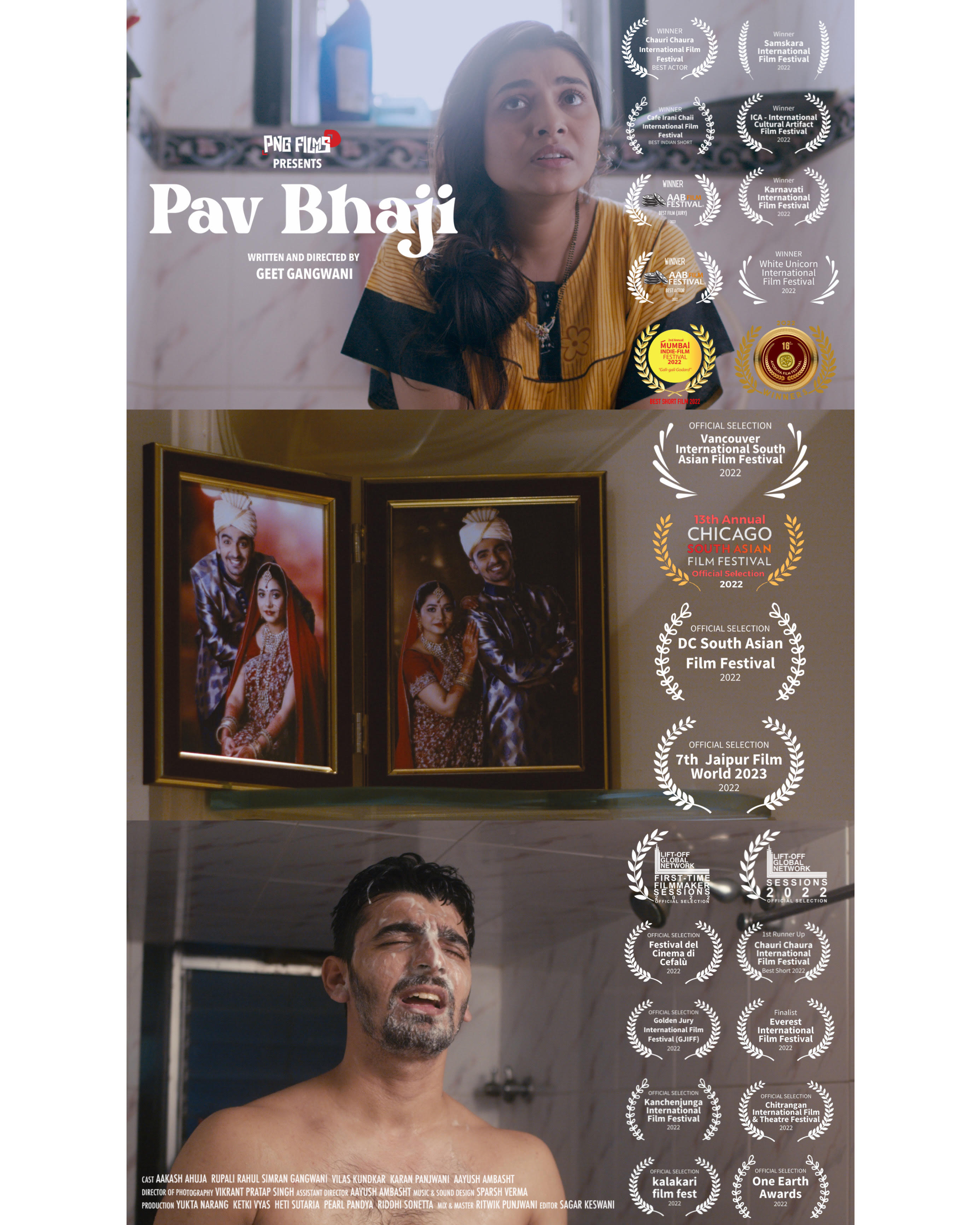
India Independent Film Review “Shehjar (Shade)”
WATCH THE TRAILER HERE
First, the Recap:
Association. Fellowship. Affiliation. Alliance. Friendship. All words that signify the bonds shared by people whose lives are so closely knit together, sharing in a common heritage or agenda, and held fast by the cords of faithfulness and devotion. Yet, what happens when a situation or circumstance threatens to tear newly acquired closeness apart from with within? For one group, one family of individuals– young adults Nasif (Sunil Kumar Palwal) and Miryam (Ira Dubey) plus two kids Jasim (Zahid Mir) and Khalid (Burhan Shafi Itoo)–it will all become too real. Traveling as a group from their homeland to Katra via walking and car, they all board a train bound for the City of Dreams, Mumbai, with their final destination there unknown.
Barely speaking to each other while on their odyssey to the city, arrival there doesn’t do much to lighten their spirits or elicit any conversation beyond glances and the evident weariness they all have in common. Finally being ushered to their place of residence by the enigmatic Mr. Zaffar (Kaliprasad Mukherjee), they four settle in while beginning to connect again as a family, and making the most of what they have been provided while their ultimate goal is yet to be revealed. However, as days and weeks go by, with no answers from Mr. Zaffar as to what is to happen next, the restlessness arrives, tempers flare, mistakes are made, and the endgame of which they are a part is suddenly endangered, as everything has not been what it seems.
Next, my Mind:
Delivering a slowly burning, subdued tone and pacing to start that leads into a taut, sobering, and unsettling second act which then culminates in the unthinkable and hence gives this indie film its emotional punch and compelling message, writer/director/producer/cinematographer/editor Nikhil Allug’s 123-minute film redefines the dramatic thriller. Intentionally choosing to allow the viewer to be borderline perplexed in the beginning by having virtually no dialogue, it is a visual journey for the characters that one must take in and make initial determinations about exactly what is transpiring–who are they, where are they going, and why–even as the beauty of their initial surroundings captures the imagination.
Once to Mumbai and in their domicile, more conversation and interaction abruptly begins, which shines an entirely unanticipated light on events and turns the narrative into a much more tension-filled endeavor, as suddenly there is a clashing of ideologies, religion, politics, love, loyalty, and patriotism amongst them that puts their personal convictions and the still-hazy reasons as to why they have been brought to Mumbai to the test. The finale is such a slap in the face as it all comes into focus, and for this reviewer, it was truly one of most clever twists in storytelling I’ve seen recently. As indicated briefly above, the cinematography here embraces landscapes, other settings, and the characters themselves with skilled poise and aids in emphasizing key moments throughout, as do the varying musical interludes.
The primary actors here are simply excellent on both an individual and group basis. Palwal’s Nasif is an everyman with a brain, being an engineer in Delhi, and whose overall demeanor is one that’s both compassionate and authoritative to a certain extent. His evident care for Miryam seems so platonic yet one knows its more, though the exploration of that relationship leads to harsh results. Even when he makes one particular error in judgement that is severely frowned upon on multiple levels, his humbleness in asking forgiveness is heartbreaking while likewise his anger-fueled passion within is just as intense. Palwal does a fantastic job in enacting all these varying states of being Nasif encounters, which makes the character believable.
Dubey’s Miryam is a study in what so many would consider a portrait of the archetypal South Asian woman, with her face covered until appropriate, taking on the cooking and related duties at the family’s “home”, and being a calming presence overall. Yet, within her is a fire and drive that takes a while to be revealed. When it is, though, there’s no doubt the inner ferocity of her love and caring towards Nasif and the two boys exists, likewise for the purpose she’s present for as well. The unassuming resolve Miryam shows even in the face of an unmerciful encounter she experiences and a painful loss she endures is admirable, therefore making it understandable why she has the strength she does. Dubey’s performance is emotive and haunting throughout.
Mir and Itoo also shine as the two boys Jasim and Khalid, a pair of young men who are full of energy plus the typical bravado and ability to make trouble like any boys of their respective ages would. Yet, they both possess the acute awareness of their own intentions and justifications to be a part of the family and the goals forthcoming. Between the elder Jasim’s questioning nature to the younger Khalid’s fanciful and youthfully ignorant actions and attitudes, it all plays a part in the proceedings and the means by which their story plays out, whether for good or ill, and is another factor that makes the finale so potent and unnerving. Mukherjee’s Zaffar is one of the first elements that lets us know things might not be what they seem on the surface, as his calm, friendly demeanor hides another side to him that is angry and forcefully driven to ensure the group’s objectives are attained. He mainly plays nice, but when push comes to shove, he’s one not to be trifled with, as the household finds out the hard way. Additional support is provided by Jageshwar Banvariya as Zaffar’s right hand man Masloof, another individual with a specific skill set not to take lightly. In total, “Shehjar (Shade)” is a finely-crafted piece of Indian cinema that more than deserves a look, taking the viewer on one wild ride that begins so innocently, only to drop you right into the fire, with a only a hint at what could have been.
As always, this is all for your consideration and comment. Until next time, thank you for reading!




